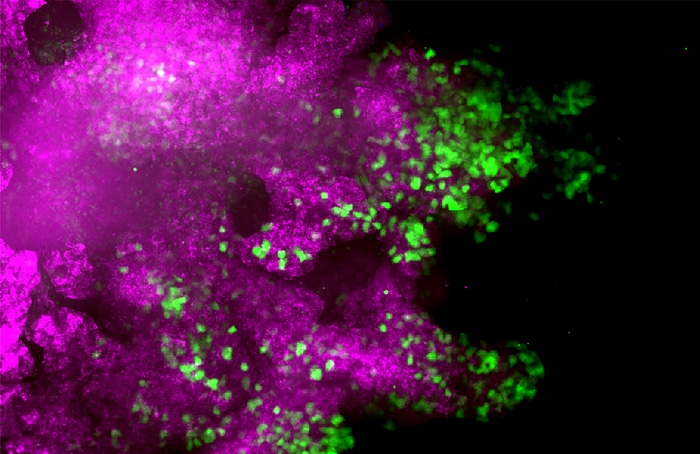In metastasis, cancer cells break away from the original tumor, travel through the blood or lymph system, and form a new tumor in other organs or tissues of the body. Now, researchers at the University of Basel report that the cell transformation known as epithelial-mesenchymal transition (EMT) allows cancer cells to break away from the primary tumor and spread elsewhere. The researchers demonstrated that tumor cells contribute differently to the formation of metastases and the development of therapy resistance, depending on whether they have undergone full or only partial transformation.
Their findings are published in the journal Developmental Cell in a paper titled, “Distinct contributions of partial and full EMT to breast cancer malignancy.”
EMT is the process whereby epithelial cells are transformed into mesenchymal cells.
“EMT is a transient, reversible process of cell de-differentiation where cancer cells transit between various stages of an EMT continuum, including epithelial, partial EMT, and mesenchymal cell states,” the researchers wrote. “We have employed Tamoxifen-inducible dual recombinase lineage tracing systems combined with live imaging and 5-cell RNA sequencing to track cancer cells undergoing partial or full EMT in the MMTV-PyMT mouse model of metastatic breast cancer.”
Not all cancer cells go through the EMT program in full, which is why they ultimately have different characteristics and properties. Researchers led by professor Gerhard Christofori in the department of biomedicine at the University of Basel investigated the way in which cells influence the progression of cancer depending on how the EMT proceeds.
Using mouse models for breast cancer, the research team was able to show that breast cancer cells that have completed only individual stages of EMT have a key impact on the formation of lung metastases in mice. When the researchers eliminated these cells, this proved to inhibit the development of metastases.
The new findings highlight the potential of inhibiting EMT in the development of novel therapeutic approaches against cancer metastasis and resistance to therapy.






